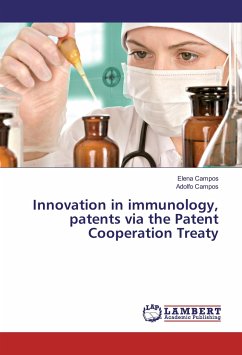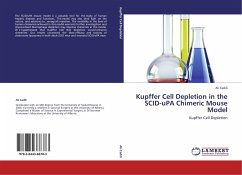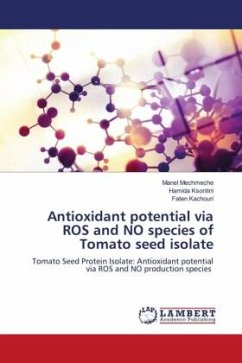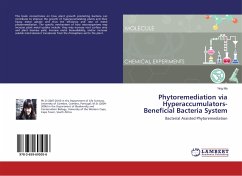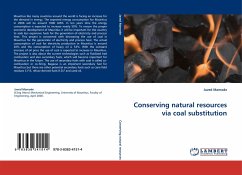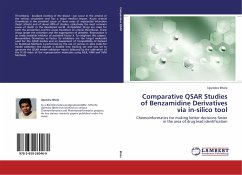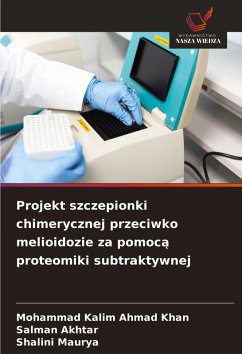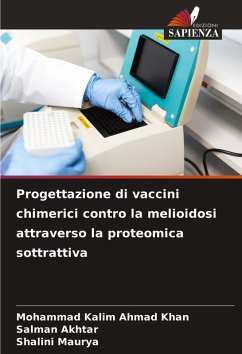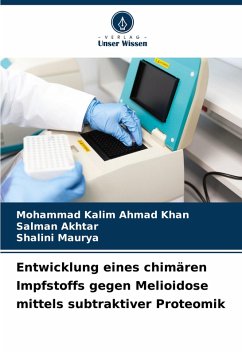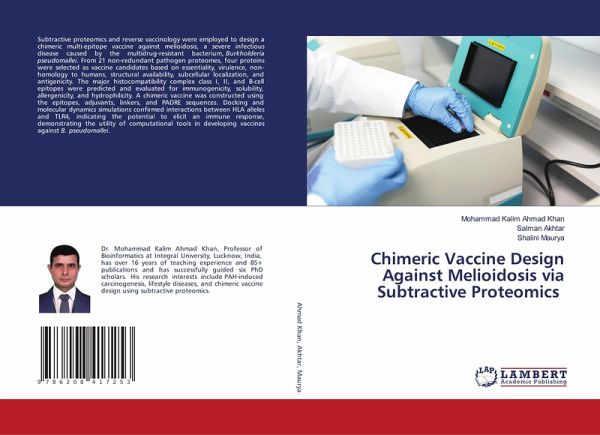
Chimeric Vaccine Design Against Melioidosis via Subtractive Proteomics
Versandkostenfrei!
Versandfertig in 6-10 Tagen
40,99 €
inkl. MwSt.

PAYBACK Punkte
20 °P sammeln!
Subtractive proteomics and reverse vaccinology were employed to design a chimeric multi-epitope vaccine against melioidosis, a severe infectious disease caused by the multidrug-resistant bacterium, Burkholderia pseudomallei. From 21 non-redundant pathogen proteomes, four proteins were selected as vaccine candidates based on essentiality, virulence, non-homology to humans, structural availability, subcellular localization, and antigenicity. The major histocompatibility complex class I, II, and B-cell epitopes were predicted and evaluated for immunogenicity, solubility, allergenicity, and hydrop...
Subtractive proteomics and reverse vaccinology were employed to design a chimeric multi-epitope vaccine against melioidosis, a severe infectious disease caused by the multidrug-resistant bacterium, Burkholderia pseudomallei. From 21 non-redundant pathogen proteomes, four proteins were selected as vaccine candidates based on essentiality, virulence, non-homology to humans, structural availability, subcellular localization, and antigenicity. The major histocompatibility complex class I, II, and B-cell epitopes were predicted and evaluated for immunogenicity, solubility, allergenicity, and hydrophilicity. A chimeric vaccine was constructed using the epitopes, adjuvants, linkers, and PADRE sequences. Docking and molecular dynamics simulations confirmed interactions between HLA alleles and TLR4, indicating the potential to elicit an immune response, demonstrating the utility of computational tools in developing vaccines against B. pseudomallei.





